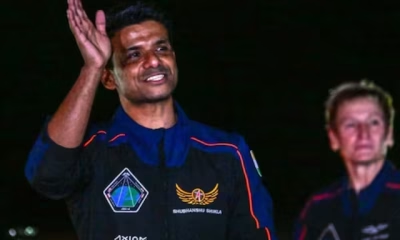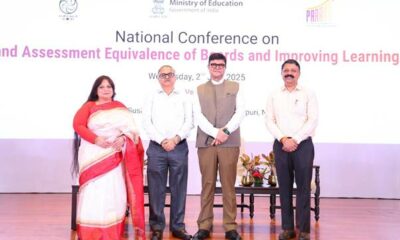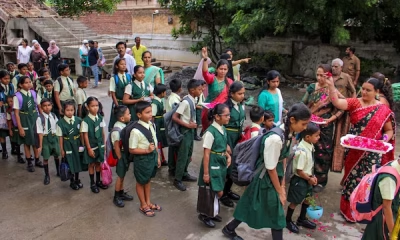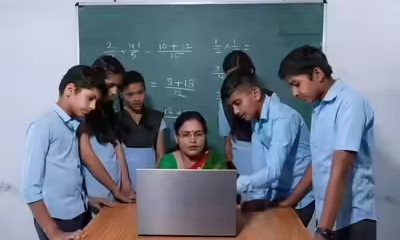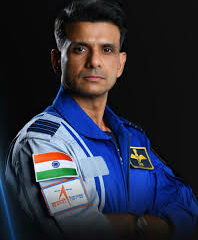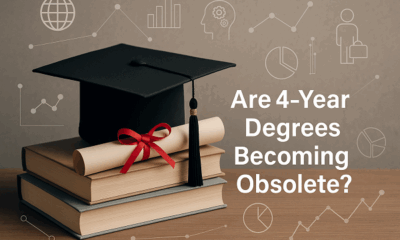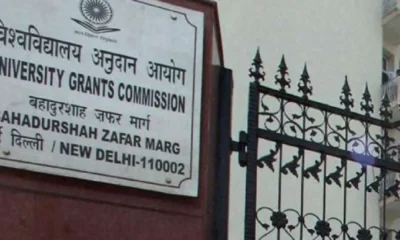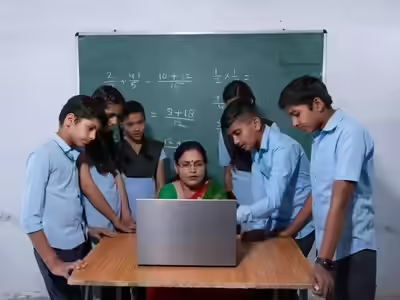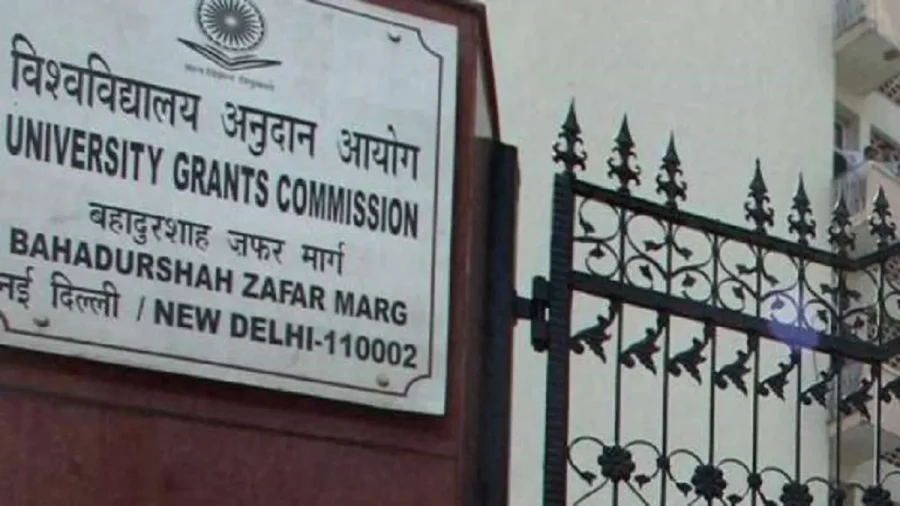For more details on the Awardee Teachers, Kindly click the link.
Click here to read PM Modi's letter to the teaching community on Teachers' Day
The Vice President of India, Shri M. Venkaiah Naidu presented the National Award to Teachers for the year 2017 on the occasion of Teachers’ Day, in New Delhi yesterday. The Union Minister for Human Resource Development, Shri Prakash Javadekar, the Minister of State for Human Resource Development, Shri Upendra Kushwaha and other dignitaries were present on the occasion.
Speaking on the occasion, Shri M. Venkaiah Naidu said that ‘Teachers are the key Architects of National Development’ and the basic education must be in the mother tongue. The Vice President said that it is because of teachers like you that our system of education is moving steadily towards greater heights of excellence. In recognising your outstanding contribution the government has not only recognised you as individuals but has also showcased what can be actually achieved with competence, commitment and collaboration, he added.
The Vice President said that the countries of the world had recognized India as a world teacher or Vishwa Guru. He further said that in many ways this stream of intellectual pursuits and knowledge creation has continued over the last two millennia. However, there are persistent challenges in providing good quality education for all children, youth and adults, he added.
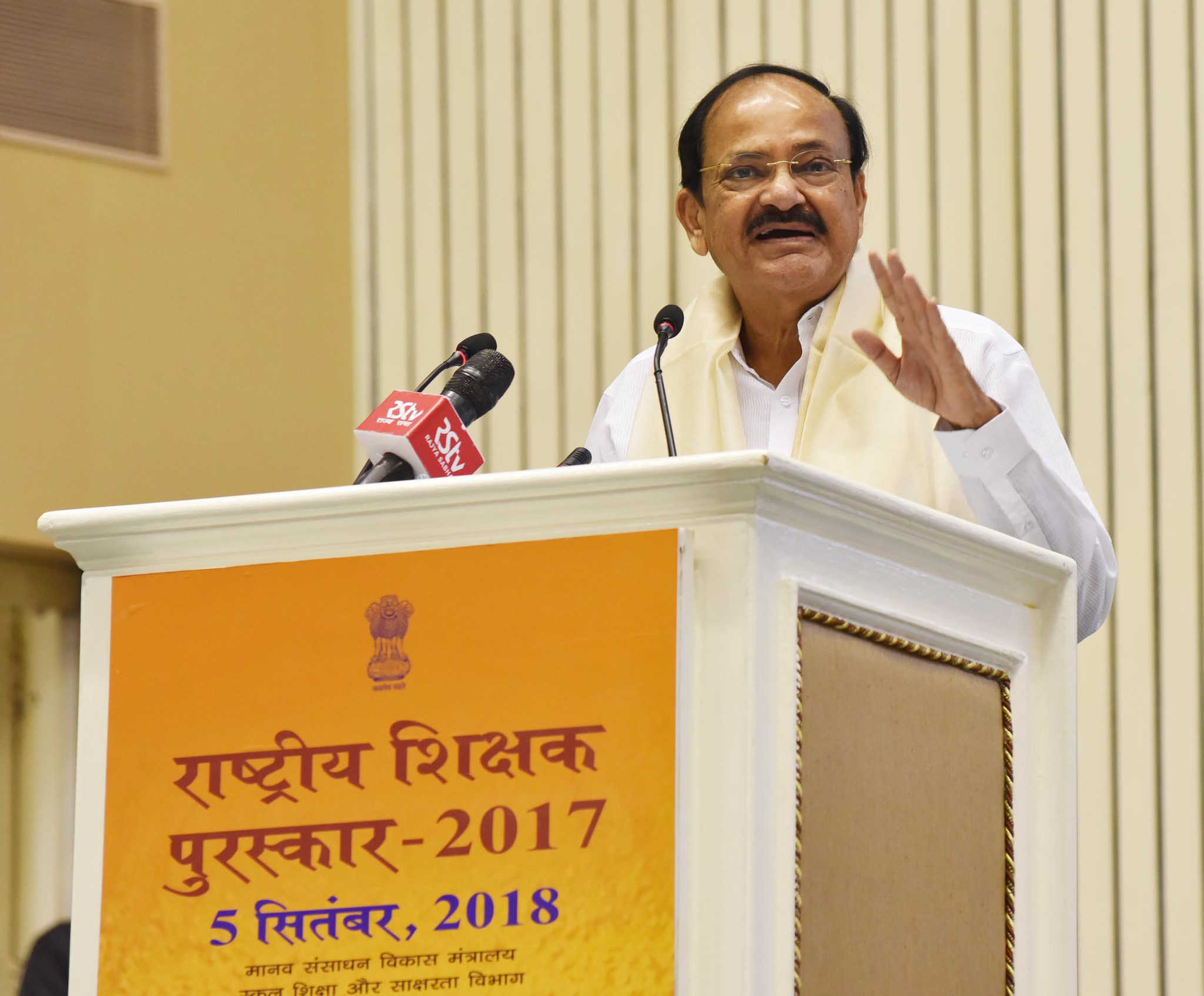
The Vice President said that the teachers must make their instruction learner-friendly and this essentially implies that if we have to universalise quality education the teachers must individualise learning. They must know each child well and respond to the learning needs of each and every child in the classroom, he added.
The Vice President said that experiential learning or learning by doing is one the most effective methods. As Confucius had said, “I hear and I forget. I see and I remember. I do and I understand”. He further said that the teachers should make students learn through activities and this is the basic principle which has been detailed by educationists like Gurudev Tagore, Shri Aurobindo and Mahatma Gandhiji. Gandhiji had evolved a comprehensive, integrated vision of education called ‘Nayee Taaleem’ which relied on learning by doing, he added.
While addressing the gathering, Shri Prakash Javadekar said that teaching is a most respected profession and the purpose of National Award to the Teachers is to celebrate the unique contribution of some of the finest teachers in the country and to honour those teachers, who through their commitment have not only improved the quality of school education but also enriched the lives of their students.
He said that to ensure transparency, we have changed the selection process for the National Award for the teachers. This year, the teachers with innovative teaching methods, using the applications of ICT, creative learning, mobilizing the community, promoting civic sense were selected. He further said that teachers have been awarded the national awards on their performance and not on the recommendations.
Shri Javadekar said that the Ministry of Human Resource Development has taken a number of initiatives to change the structure of the entire education system. He added that to promote teaching reforms, the ministry has developed various platforms like Swayam, Diksha and Shagun. He also highlighted the significant achievements of the Ministry like more than 14 lakh teachers have applied for D.El.Ed courses increased funding under Samagra Shiksha Abhiyan etc. He congratulated the winners of the awards for the invaluable services rendered by them. He said this felicitation to teachers is an inspiration to others to perform in the future.
Addressing on the occasion, the Minister of State for Human Resource Development, Shri Upendra Kushwaha congratulated the winners of National Award to Teachers – 2017. He said that the teachers are the real agents of change and they have greater responsibility in national development.
Smt. Rina Ray, Secretary, Department of School Education and Literacy gave the vote of thanks on the occasion. Teachers from KVS and NVS performed songs at the end of the ceremony.
The award carries a Silver Medal, Certificate and Rs.50, 000/- as award money.
This year, the Ministry of Human Resource Development revised the guidelines for the selection of Teachers for National Awards (2017). From now onwards, all regular teachers will be eligible to apply and no minimum years of service are required. This has enabled meritorious young teachers to apply (under the earlier scheme, only teachers with minimum 15 years of service were eligible). For the first time, all teachers could directly apply and nominate themselves for the award (this feature did not exist in the earlier scheme).
A total of 6692 applications were received from teachers from all over the country. The number of awards has been rationalized to 45. This has been necessary to restore the prestige of the awards (under the earlier scheme the number of awardees had crossed 300).
The final selection was done by an independent Jury. The criterion adopted was to select those teachers who had shown innovation in their work and had added value to the school and to their students. These nominated teachers gave a presentation before an independent Jury comprising a senior educationist, during the 3rd week of August 2018. This ensured that all of them were given an opportunity to place before the jury their contribution and the work done by them.
For more details on the Awardee Teachers, Kindly click the link.
Click here to read PM Modi's letter to the teaching community on Teachers' Day
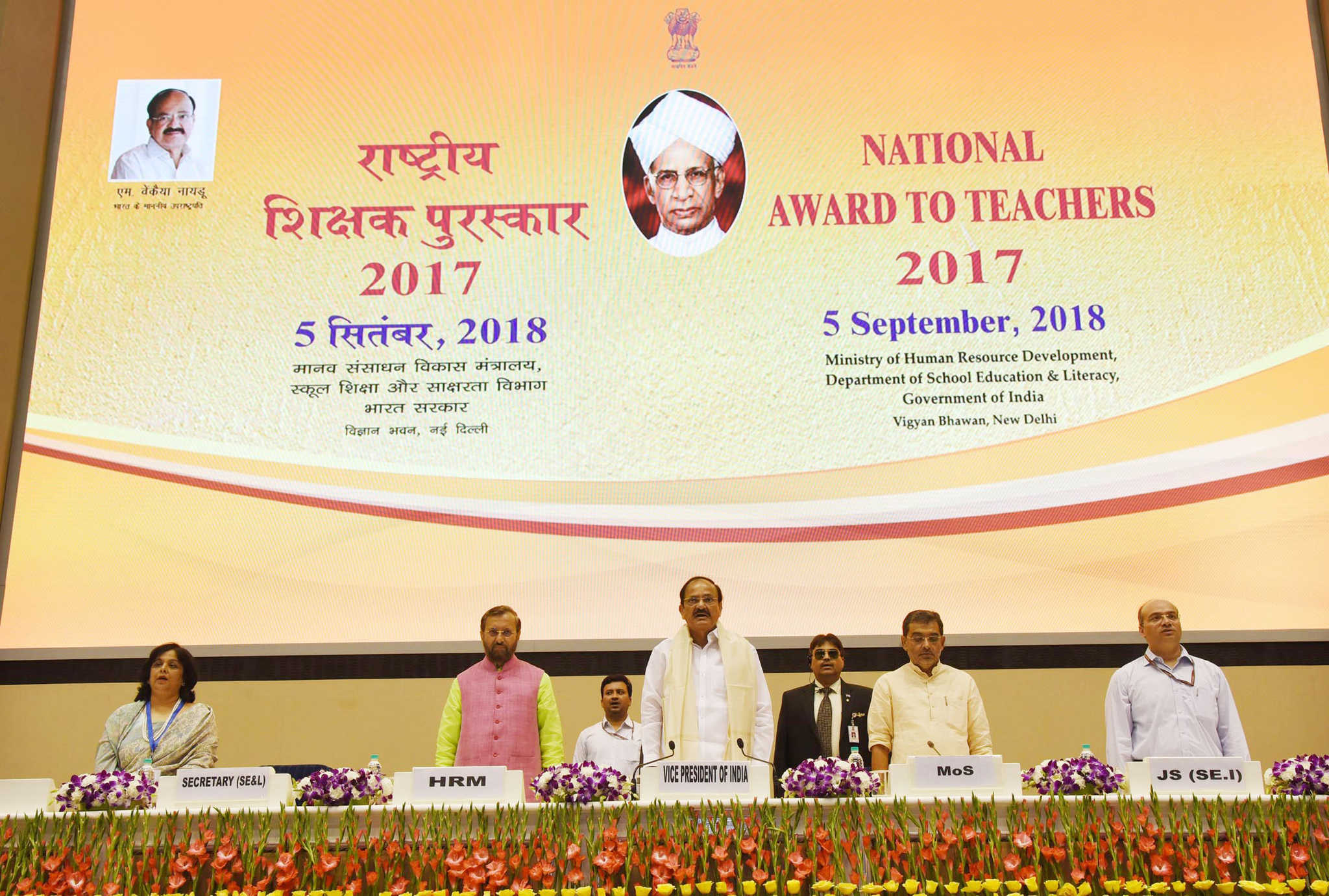
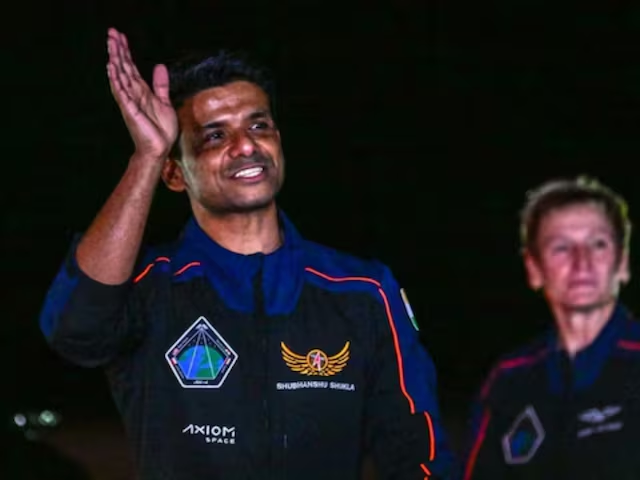

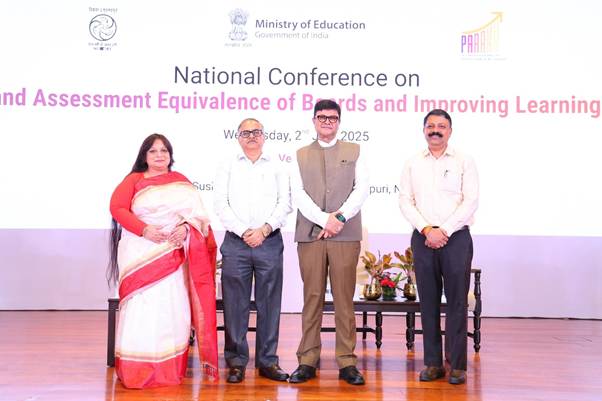
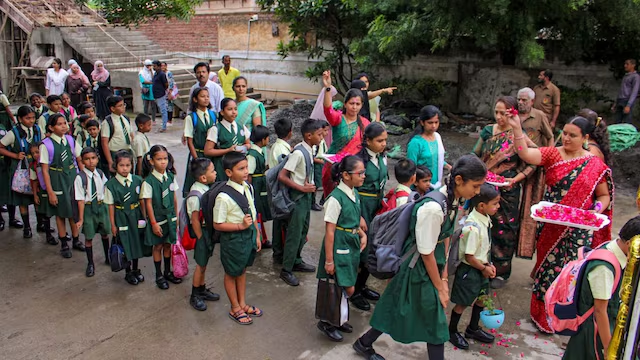
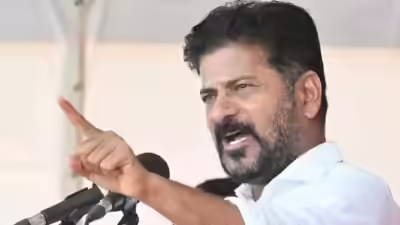
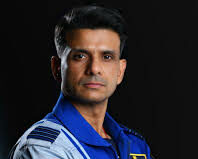
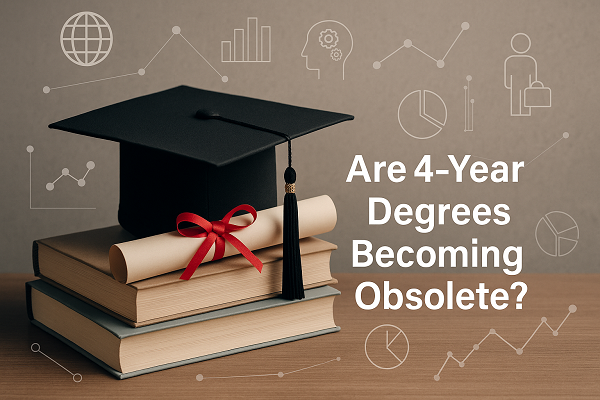
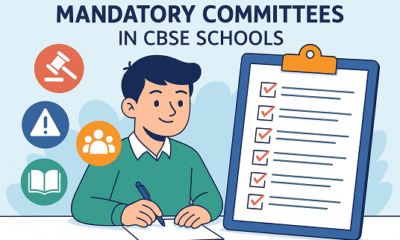
 Education3 months ago
Education3 months ago
 Education2 months ago
Education2 months ago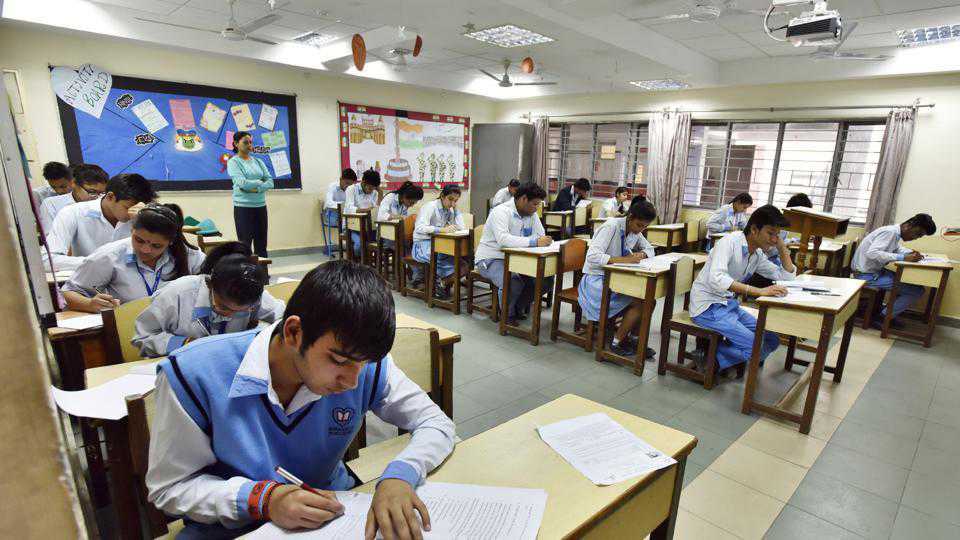
 News3 months ago
News3 months ago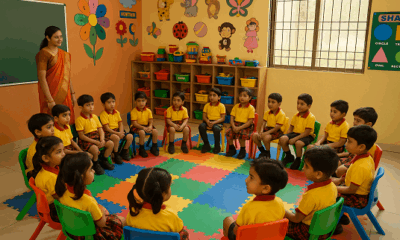
 Education2 months ago
Education2 months ago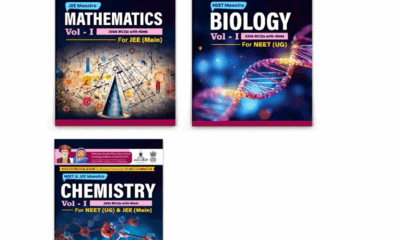
 Education3 months ago
Education3 months ago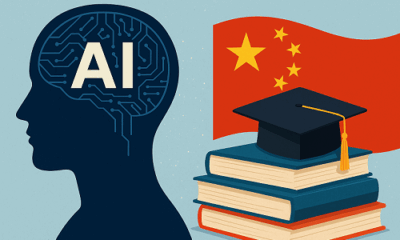
 Education3 months ago
Education3 months ago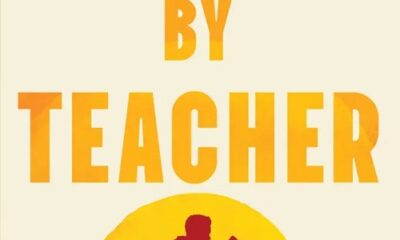
 Education2 months ago
Education2 months ago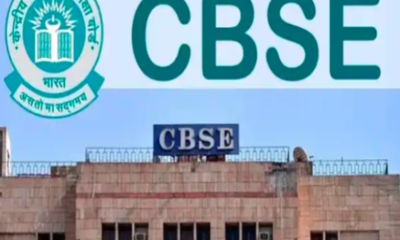
 Education3 months ago
Education3 months ago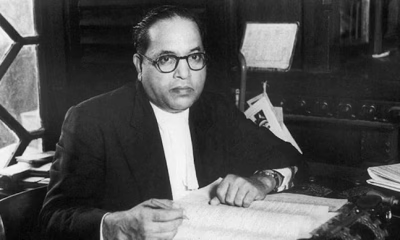
 Education3 months ago
Education3 months ago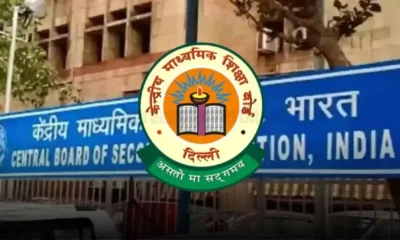
 Education3 months ago
Education3 months ago



